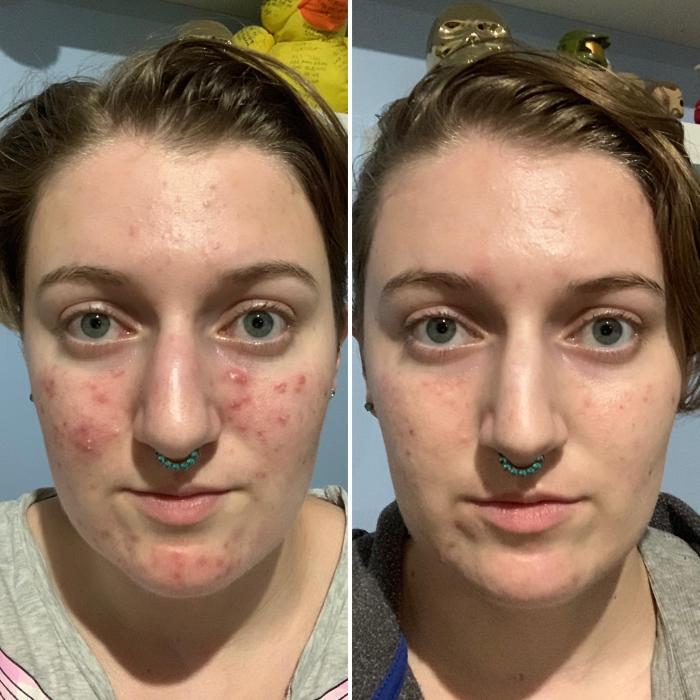
Embark on a journey to discover the best birth control for acne, unraveling the mysteries of hormonal contraceptives and non-hormonal options to manage acne effectively.
Explore the different birth control methods tailored to address acne concerns, guiding you towards clearer and healthier skin.
Introduction to Birth Control for Acne
When it comes to managing acne, birth control can play a significant role in treatment. Hormonal contraceptives, commonly known as birth control pills, can help regulate hormones that contribute to acne development. By balancing hormone levels, birth control can effectively control breakouts and improve skin appearance.
Types of Birth Control Methods for Acne Treatment
There are several types of birth control methods that are commonly used to treat acne. These include:
- Combined Oral Contraceptives: These pills contain both estrogen and progestin, which can help regulate hormone levels and reduce acne.
- Progestin-Only Pills: Also known as mini-pills, these pills only contain progestin and can be used by women who cannot take estrogen.
- Birth Control Patch: This transdermal patch releases hormones into the bloodstream to help control acne.
- Birth Control Injection: Injectable contraceptives can also be effective in managing acne by regulating hormone levels.
- Intrauterine Devices (IUDs): Hormonal IUDs release progestin locally, which can help improve acne without affecting the entire body.
Hormonal Contraceptives for Acne
When it comes to treating acne, hormonal contraceptives play a significant role in regulating hormones that can contribute to breakouts. Estrogen and progestin, the two main components of hormonal contraceptives, can impact acne in different ways.
Impact of Estrogen and Progestin
- Estrogen: This hormone can help decrease the production of sebum, the oily substance that can clog pores and lead to acne. By reducing sebum levels, estrogen can help prevent breakouts.
- Progestin: On the other hand, progestin can have varying effects on acne. Some types of progestin may worsen acne by increasing sebum production, while others may help improve acne by counteracting the androgen hormones that contribute to breakouts.
Types of Hormonal Contraceptives
There are different types of hormonal contraceptives available, each with its own combination of estrogen and progestin. Some common options include:
- Combined oral contraceptives (COCs): These contain both estrogen and progestin and are often prescribed to help improve acne by regulating hormone levels.
- Progestin-only contraceptives: While these may not be as effective in treating acne as COCs, they can still be an option for individuals who cannot take estrogen.
Effectiveness and Side Effects
When it comes to treating acne, combined oral contraceptives (COCs) are often considered more effective due to the combination of estrogen and progestin working together to regulate hormones. However, it’s important to note that hormonal contraceptives can also come with potential side effects, such as:
- Changes in mood
- Weight gain
- Nausea
- Irregular bleeding
Non-Hormonal Birth Control Options for Acne
While hormonal contraceptives are commonly used to treat acne, non-hormonal birth control methods can also be effective in improving acne for individuals who prefer non-hormonal options.
Non-Hormonal Contraceptives for Acne Treatment
Non-hormonal contraceptives work by preventing pregnancy through methods that do not involve altering hormone levels. These methods can be beneficial for individuals who are sensitive to hormonal changes and are looking for alternative birth control options that can help with acne.
- Barrier Methods: Barrier methods such as condoms, diaphragms, and cervical caps are non-hormonal options that can effectively prevent pregnancy without affecting hormone levels. These methods create a physical barrier to prevent sperm from reaching the egg.
- Copper Intrauterine Devices (IUDs): Copper IUDs are non-hormonal contraceptive devices that are inserted into the uterus to prevent pregnancy. The copper in the IUD creates an inflammatory response that is toxic to sperm, preventing fertilization.
Pros and Cons of Non-Hormonal Birth Control Options for Acne-Prone Individuals
- Pros:
- Non-hormonal methods do not interfere with natural hormone levels, making them suitable for individuals who are sensitive to hormonal changes.
- Some non-hormonal methods, such as copper IUDs, provide long-term contraception without the need for daily maintenance.
- Cons:
- Barrier methods, such as condoms, may have a higher failure rate compared to hormonal methods.
- Copper IUDs can cause heavier periods and increased cramping for some individuals.
Combination Birth Control Pills for Acne

Combination birth control pills are often prescribed to manage acne in women. These pills contain a combination of synthetic forms of the hormones estrogen and progestin, which work together to regulate hormonal fluctuations that can contribute to acne breakouts.
Hormones in Combination Pills
- Estrogen: This hormone helps to decrease the levels of circulating androgens, which are known to stimulate the sebaceous glands and contribute to the development of acne.
- Progestin: Progestin helps to counteract the androgenic effects of other hormones, further reducing the likelihood of acne flare-ups.
Effectiveness and Risks
- Effectiveness: Combination birth control pills have been shown to be effective in improving acne in many women. It can take a few months to see results, but overall, they can help reduce the severity and frequency of breakouts.
- Risks: While combination pills can be beneficial for managing acne, there are potential risks associated with their use. These include an increased risk of blood clots, stroke, and cardiovascular issues in some individuals. It’s essential to discuss these risks with a healthcare provider before starting on combination birth control pills.
Progestin-Only Birth Control for Acne

Progestin-only birth control methods, also known as mini-pills, can have varying effects on acne depending on the individual’s hormonal balance.
Types of Progestin-Only Contraceptives
- Cerazette: This progestin-only pill contains desogestrel, which can help reduce acne by decreasing oil production in the skin.
- Depo-Provera: A progestin-only injection that may worsen acne in some individuals due to its androgenic effects.
- Implanon: A progestin-only implant that can either improve or worsen acne depending on the individual’s response to the hormone.
It is important to consult with a healthcare provider to determine the most suitable progestin-only birth control option based on your skin type, hormonal balance, and acne severity.
Long-Acting Reversible Contraceptives (LARCs) for Acne
Long-Acting Reversible Contraceptives (LARCs) like IUDs and implants are highly effective birth control methods that can also have an impact on acne management.
Hormonal and Non-Hormonal Options in LARCs for Acne Management
- Hormonal IUDs: Some hormonal IUDs release progestin, which can help improve acne by reducing sebum production and inflammation in the skin.
- Non-Hormonal IUDs: Copper IUDs provide a non-hormonal option for birth control without affecting acne directly.
- Implants: Hormonal implants release progestin into the body, which can also help in managing acne by regulating hormonal fluctuations.
Benefits and Considerations of Using LARCs for Acne
- LARCs are highly effective in preventing pregnancy, providing long-term birth control without the need for daily maintenance.
- For individuals with acne concerns, hormonal LARCs can offer dual benefits of contraception and acne management.
- Considerations include potential side effects such as irregular bleeding, mood changes, or weight gain, which may vary depending on the individual.
Lifestyle Changes and Complementary Treatments
When it comes to managing acne while on birth control, lifestyle changes and complementary treatments can play a significant role in enhancing the effectiveness of your treatment plan.
Skincare Routines
Having a consistent skincare routine can help improve acne while on birth control. Opt for gentle cleansers, non-comedogenic moisturizers, and acne-fighting ingredients like salicylic acid or benzoyl peroxide. Make sure to cleanse your skin twice a day and avoid harsh scrubbing that can irritate the skin.
Diet Adjustments
- Avoiding dairy and high-glycemic foods may help reduce acne breakouts. Opt for a diet rich in fruits, vegetables, whole grains, and lean proteins.
- Stay hydrated by drinking plenty of water throughout the day to keep your skin hydrated and healthy.
- Limit your intake of sugary and processed foods, as they may trigger acne flare-ups.
Stress Management
High levels of stress can exacerbate acne, so incorporating stress-reducing activities such as yoga, meditation, or deep breathing exercises can help improve your skin condition.
Regular Exercise
Regular physical activity can help improve blood circulation, reduce stress, and promote overall skin health. Aim for at least 30 minutes of exercise most days of the week to support your acne treatment.
Reproductive Health and Birth Control
Reproductive health plays a crucial role in the decision-making process when selecting a birth control method. It involves not only preventing unwanted pregnancies but also ensuring overall well-being and functioning of the reproductive system.
Impact of Birth Control on Reproductive Health
- Birth control methods can regulate menstrual cycles, reducing the risk of irregular periods or hormonal imbalances that may affect fertility.
- Some forms of birth control, such as hormonal contraceptives, can help manage conditions like polycystic ovary syndrome (PCOS) or endometriosis, improving reproductive health outcomes.
- Choosing the right birth control can also prevent unintended pregnancies, reducing the risk of complications that may arise from unsafe or mistimed pregnancies.
Broader Implications of Birth Control Selection
- Effective birth control methods contribute to family planning and allow individuals to make informed choices about when to start a family, promoting reproductive autonomy.
- By reducing the number of unplanned pregnancies, birth control helps in preventing maternal and infant mortality, improving overall reproductive health outcomes.
- Access to a variety of birth control options ensures that individuals can find a method that aligns with their preferences, lifestyle, and health needs, enhancing their reproductive well-being.
Final Wrap-Up
In conclusion, choosing the best birth control for acne is crucial for both skincare and reproductive health, paving the way for a balanced and confident lifestyle.
FAQ Section
Can birth control help with acne?
Yes, certain types of birth control, especially hormonal contraceptives, can effectively manage acne.
Are there non-hormonal options for acne treatment?
Absolutely, there are non-hormonal birth control methods that can also improve acne without affecting hormones.
What are the potential risks of using birth control pills for acne?
Some risks may include hormonal imbalances, changes in menstrual cycles, or skin reactions. It’s best to consult a healthcare provider.
How do lifestyle changes complement birth control for acne?
Skincare routines, diet adjustments, and holistic approaches can enhance the effectiveness of birth control in managing acne.





